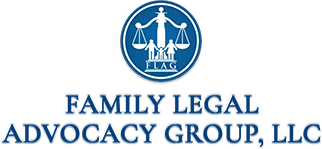ANNAPOLIS, MD — Of all the new state laws that will go into effect on Saturday, Oct. 1, the most well-known may be the Drunk Driving Reduction Act of 2016, also known as Noah’s Law, named after slain Montgomery County Police Officer Noah Leotta.
Leotta, 24, was hit Dec. 3, 2015, by a car on Rockville Pike; he died a week later. The driver charged with fatally striking Leotta – while he was working as part of a holiday task force fighting drunk driving – pleaded guilty to a manslaughter charge.
On May 19, Maryland Gov. Larry Hogan signed SB 945, also known as Noah’s Law. The law requires the use of ignition interlocks for convicted drunk drivers; the devices prevent vehicles from starting when they detect a certain level of alcohol on the driver’s breath and require the driver to retest at random points while they are driving.
Over the past five years, impaired drivers have accounted for roughly one-third of all roadway deaths in Maryland. Under Noah’s Law, drivers are required to participate in Maryland’s Ignition Interlock Program for the following convictions:
- Driving under the influence
- Driving while impaired while transporting a minor under the age of 16
- Driving while intoxicated with an initial breathalyzer test refusal
- Homicide or life-threatening injury by motor vehicle while DUI or DWI
Starting Oct. 1, various laws will go into effect in Maryland, including laws to increase police accountability and public safety, promote workers’ rights, establish opioid addiction outreach programs and protect the freedom of the press.
Here is a roundup, by subject area, of some of the legislation that begins Saturday:
CRIMES, CORRECTIONS & PUBLIC SAFETY
Providing Alcohol to Underage Drinkers/Alex and Calvin’s Law (HB409): Following the death of Alex Murk and Calvin Li in a 2015 drunken-driving accident after a party in Montgomery County, this law prohibits a person from allowing underage individuals to consume alcohol if they should have known that individual would drive under the influence.
Justice Reinvestment Act (SB1005): The law expands drug treatment in the state health department, and treatment for substance abuse and mental health through the corrections department, including risk and needs assessments to determine risks of reoffending. The law also calls for plans for inmate rehabilitation.
Public Safety and Policing Workgroup (HB1016):This law protects law enforcement officers from being penalized or retaliated against for disclosing information, and establishes the Maryland Police Training and Standards Commission within the Department of Public Safety and Correctional Services.
Seizure and Forfeiture (SB161/HB336): This law outlines procedures for seizure and forfeiture of property from a vehicle or other location, such as notifying the owner that it has been seized, within a specific amount of time. The law also repeals a provision that allowed for the forfeiture of drug-related money and weapons.
Child Abuse and Neglect (SB310, HB245): Anyone involved in an investigation of child abuse or neglect must report suspicions of another individual knowingly failing to report child abuse to the appropriate board, agency, institution or facility.
Criminal Law-Stalking (SB278/HB155): This law expands the definition of stalker from inciting physical fears or threats to include causing emotional distress.
Pretrial Release-Prior Crime of Violence (SB604):A District Court commissioner may not authorize the pretrial release of defendants who have been convicted of a specified crime or a crime of violence.
COURTS & CIVIL PROCEEDINGS
Children in Need of Assistance, Guardianship, Adoption, Custody, and Visitation — Blindness of Parent/Guardian (SB765): In cases with disabled parents, disabilities, including blindness, cannot discredit the parent unless proven that the disability is not in the best interest of the child.
Divorce-Corroboration of Testimony (SB359, HB274): Reversing previous laws, this allows courts to enter decrees of divorce on behalf of one spouse without the agreement of the other. It also establishes that a separation agreement is no longer sufficient to show both spouses want an absolute divorce.
Testimony by Perjurer (SB150, HB237): People who have been convicted of perjuring themselves, or lying under oath, will no longer be prohibited from testifying in court.
ECONOMIC MATTERS
Equal Pay for Equal Work (SB 481): An expansion of the current law, this legislation prohibits employers from paying employees of one gender identity at a lesser rate than other employees. The bill also states that employers may not prohibit employees from discussing or disclosing salaries.
Minimum Wage for the Disabled (SB 417): Starting Oct. 1, the Commissioner of Labor and Industry cannot authorize a work activities center or other sheltered workshop to pay an employee with a disability a subminimum wage unless granted prior permission to do so. Until Oct. 1, 2020, however, employers with prior permission may continue to do so. Afterward, no employer — under any circumstance — can pay a subminimum wage to a disabled employee.
Apprenticeships (SB 92): Members of the Maryland Apprenticeships and Training Council and its consultants must reflect geographic, racial, ethnic, cultural and gender diversity within the state.
EDUCATION
Student Journalists (SB 764): Student journalists in public elementary or secondary schools or public institutions of higher education have the right to exercise freedom of speech and freedom of the press in school-sponsored media, with some restrictions. Each county board of education and public institution of higher education must write a policy that may include limitations on abusive or threatening language or profanity.
University of Maryland Strategic Partnership Act (SB 1052): The law cements a partnership between the University of Maryland, College Park and the University of Maryland, Baltimore and calls for them to be named the University of Maryland. Additionally, it calls for the University System of Maryland to create a headquarters in Baltimore by July 1. The alliance leverages resources on both campuses to improve academic programs, and economic and community development.
Consumer Protection Provisions (SB 427): Private career schools and for-profit institutions can no longer enroll students in programs that are intended to lead to employment in fields that require a license or certification in Maryland, but don’t meet state requirements. Violations will be subject to civil and criminal penalties.


